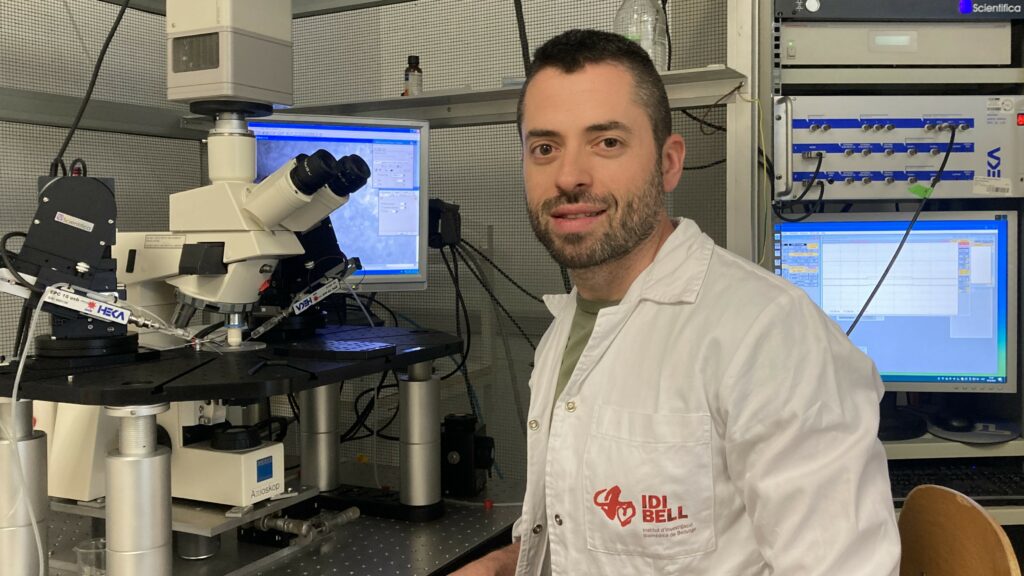Molecular Mechanisms of Synaptic Transmission
Our reserach aims to understand how synapses process information in the brain by gaining knowledge on their contribution to cognition, sensory adaptation, learning and memory. To address the study of the cellular and molecular bases of synaptic function in health and disease, we use a multidisciplinary set of approaches based on the combination of electrophysiology, imaging and molecular assays. Major research interests include: the study of the action of bacterial toxins and particularly, epsilon toxin, on the nervous system, the importance of homeostatic synaptic plastcity in information processing, the interactions established among proteins involved in neurotransmitter release and the study of synaptic (dys)function in the experimental model of X. tropicalis tadpoles.
Technologies & Methods
- Electrophysiology
- Combination of electrophysiology and optical imaging
- Fluorescence microscopy
- Electron microscopy
- Histology
- Protein purification
Research Team
Pablo Martinez San-Segundo
Postdoctoral Researcher
Marta Casas
Early Stage Researcher
David Sedano
Early Stage Researcher
Selected publications
López-Murcia, F. J., Reim, K., & Taschenberger, H. (2023). Complexins: Ubiquitously Expressed Presynaptic Regulators of SNARE-Mediated Synaptic Vesicle Fusion (pp. 255–285). https://doi.org/10.1007/978-3-031-34229-5_10
Martínez San Segundo, P., Terni, B., & Llobet, A. (2023). Multivesicular release favors short term synaptic depression in hippocampal autapses. Frontiers in Cellular Neuroscience, 17. https://doi.org/10.3389/fncel.2023.1057242
Tolosa-Monfà A, V. A. B.-C. J. B.-P. M. B.-J. E. (2023). Cytotoxicity comparison of Bio C Sealer against multiple root canal sealers. Journal of Clinical and Experimental Dentistry, 15(2), e110-117.
Velasco, C. D., Santarella-Mellwig, R., Schorb, M., Gao, L., Thorn-Seshold, O., & Llobet, A. (2023). Microtubule depolymerization contributes to spontaneous neurotransmitter release in vitro. Communications Biology, 6(1), 488. https://doi.org/10.1038/s42003-023-04779-1



